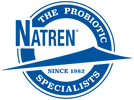What happens when you move the study of gut microbiota out of the first world to look closer at more traditional societies like the remote Amerindians? Individuals that eat, drink and breathe in the United States or Europe are exposed to Western medicine, processed foods and industrial toxins.
The Yanomami Amerindians, an isolated Amazonian tribe, do not have the same contact with outside influences as people living in more developed areas of the world. How does this isolation affect gut microbes? That is the question an international group of scientists set out to answer.
First Contact
There had been no documented contact with the Yanomami Amerindians living in the mountain region of the Amazon jungle until 2008 when the crew of a Venezuelan army helicopter “discovered” them. The people in this tribe have lived in isolation for thousands of years.
When microbiologist Maria Gloria Dominguez-Bell from the School of Medicine at New York University found out, she put together a team and requested the opportunity to study the tribe. The goal was to get a better understanding of the microbiota of hunter-gatherers in their natural environment before that information was lost.
The scientists working on the study were able to make contact with the village in 2009. During the visit, the researchers collected fecal, oral and skin samples from 34 of the village people between the ages of 4 to 50 years old in order to study a human microbiome untouched by western civilization.
The Study Findings
The researchers discovered that these remote villagers harbor one of the highest diversity of bacteria and genetic functions in their microbiome ever found in a human group. The study authors had some setbacks, but after almost three years, they were finally able to sequence the gut bacteria of the tribe participants. Some of the bacteria that make up that community of microbes had never been identified, and were found to have a positive influence on human health. For example, one group appears to work in protecting the host against the formation of kidney stones.
Dominquez-Bello and her team compared what they discovered in the jungle of Venezuela with samples taken from other Amerindians groups, specifically the rural Guahibo tribe of Columbia and from industrialized Americans. Despite harboring a high level of parasites, the Yanomami villagers remain healthy. They do not suffer from the autoimmune disorders or chronic illnesses that plague civilized populations such as diabetes or high blood pressure.
The Yanomami people have almost double the microbial diversity as Americans and between 30 to 40 percent more gut bacteria than other remote tribes studied. The conclusion the scientists made is that modern lifestyle has a significant effect on the biodiversity of human microbiota. Specific changes in gut microbes may explain many of the illnesses that millions of people battle each year.
Previous studies have proven that a reduced microbial diversity and the absence of key gut bacteria play a role in a number diseases, including type 1 diabetes, asthma and obesity – conditions that are prevalent in western society.
Antibiotic Resistance and Gut Microbes
One surprising finding by this group of scientists was that two genes in the remote tribe’s microbiota were responsible for antibiotic resistance, despite the fact that they had no exposure to modern drugs. A separate group of scientists from the University of Washington headed by microbiologist Gautam Dantas tested the samples to see if any of the genes could inactivate natural and synthetic antibiotics. They discovered that these genes worked even against the latest generation of antibiotic drugs.
The genes were there, but not expressed, meaning they likely perform other functions. The researchers believe the genes come from the interchange between the indigenous people’s bacteria and the microbes that exist in the environment surrounding them.
The opportunity to test people from the world untouched by modern civilization opened up many avenues of research. One thing is clear; people living today have lost some of the microbial diversity in the gut that helps protect them against disease. Humans in the most populous areas of the world no longer have healthy microbiota. Finding ways to balance gut microbes and identify what is missing there may be the way to good health and a proper immune system.
The post Microbiota of Remote Amerindians Reveals Antibiotic Resistance: What does this mean for us? appeared first on Natren Probiotics Blog.




0 comments